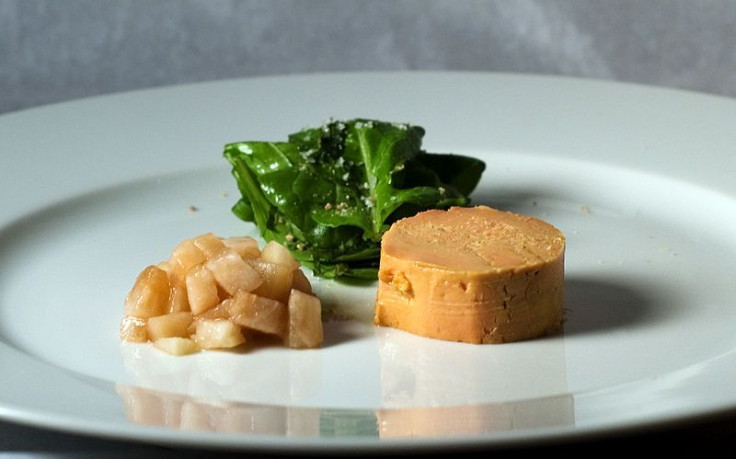Foie Gras Ban Upheld In California: Sale, Production Of Delicacy Prohibited Due To ‘Cruel’ Bird Force-Feeding

A federal appeals court unanimously upheld the California ban on foie gras because the delicacy is produced by force-feeding birds to fatten up their livers, an act that both animal activists and the court seem to agree is cruel.
Foie gras is the liver of a duck or goose. High in fat and considered a delicacy, foie gras can be served as a pate, terrine, or as a main course. The controversy surrounding foie gras stems from the way the food item is produced. The birds are force-fed until their liver grows larger than usual.
According to The Inquisitr, California lawmakers instituted the ban in 2012. In response to the ban, producers of the delicacy filed suit, alleging that the ban was too vague and, as a result, unconstitutional. On Friday, an appeals court made the language of the ban more clear.
"The specific example of force feeding under the statute — feeding a bird using a tube so that the bird will consume more food than it would consume voluntarily — is how plaintiffs feed their ducks during the gavage (force feeding) stage," Judge Harry Pregerson wrote. Therefore, he said, the "definition of force feeding is not vague."
The law bans the sale of foie gras from both out-of-state entities and California entities. California is the only state in the U.S. to ban foie gras, but it is banned in many other countries around the world.
The foie gras producers who lost the suit, of course, felt the court was being unreasonable. They said they would continue to challenge the ban.
"This isn't like fireworks, nobody is being harmed by foie gras," said Marcus Henley, operations manager of Hudson Valley Farm in New York.



























